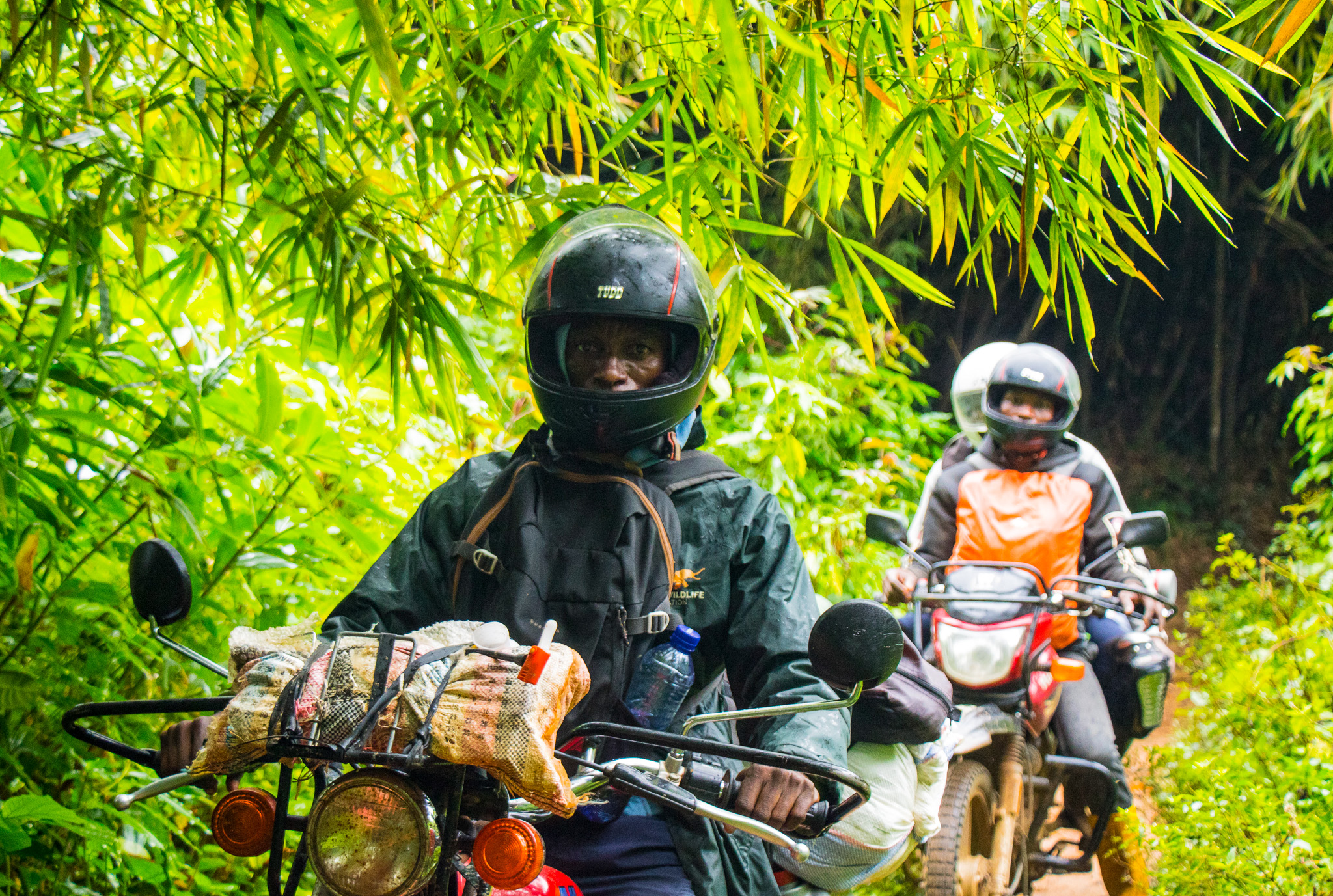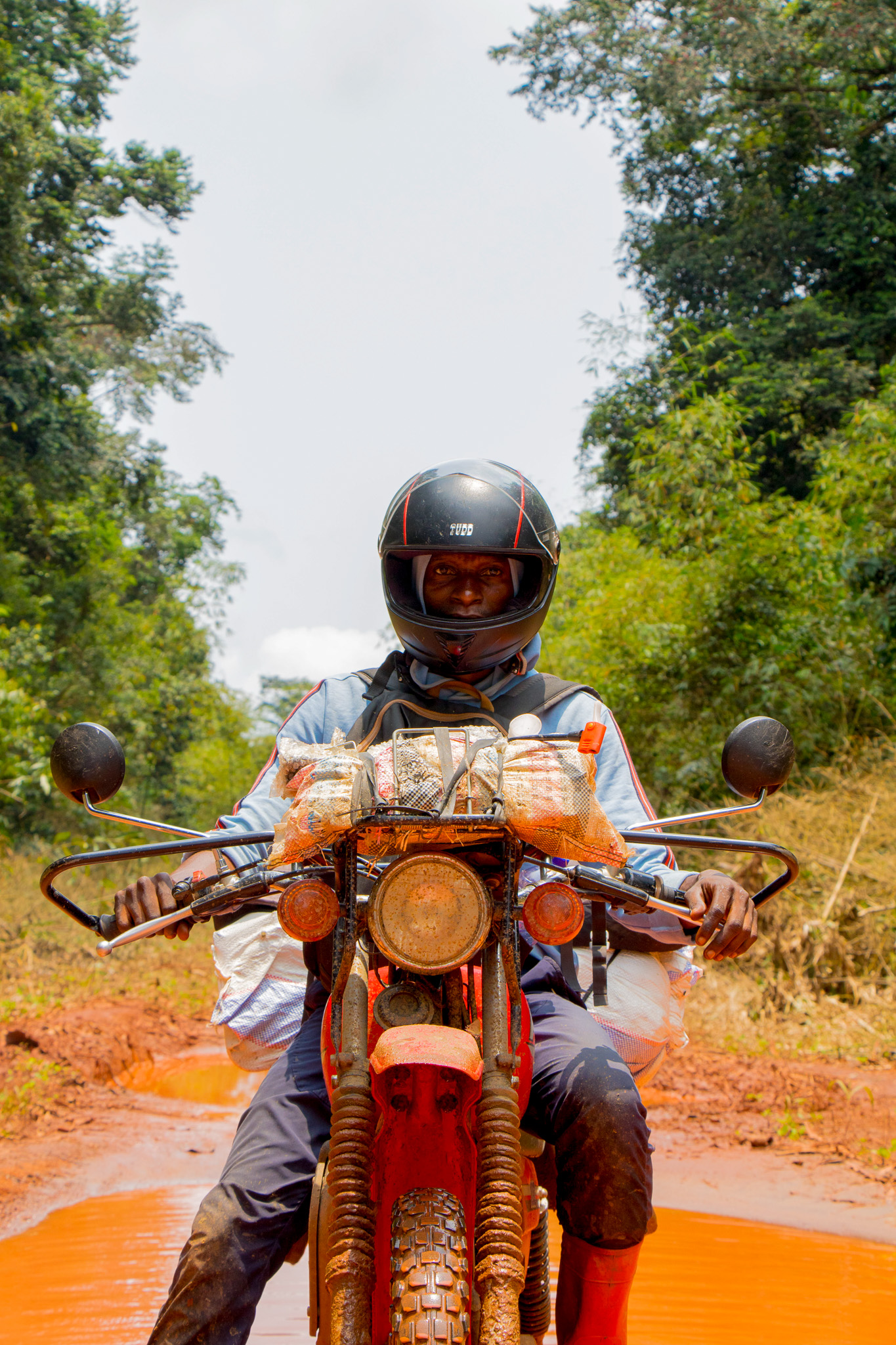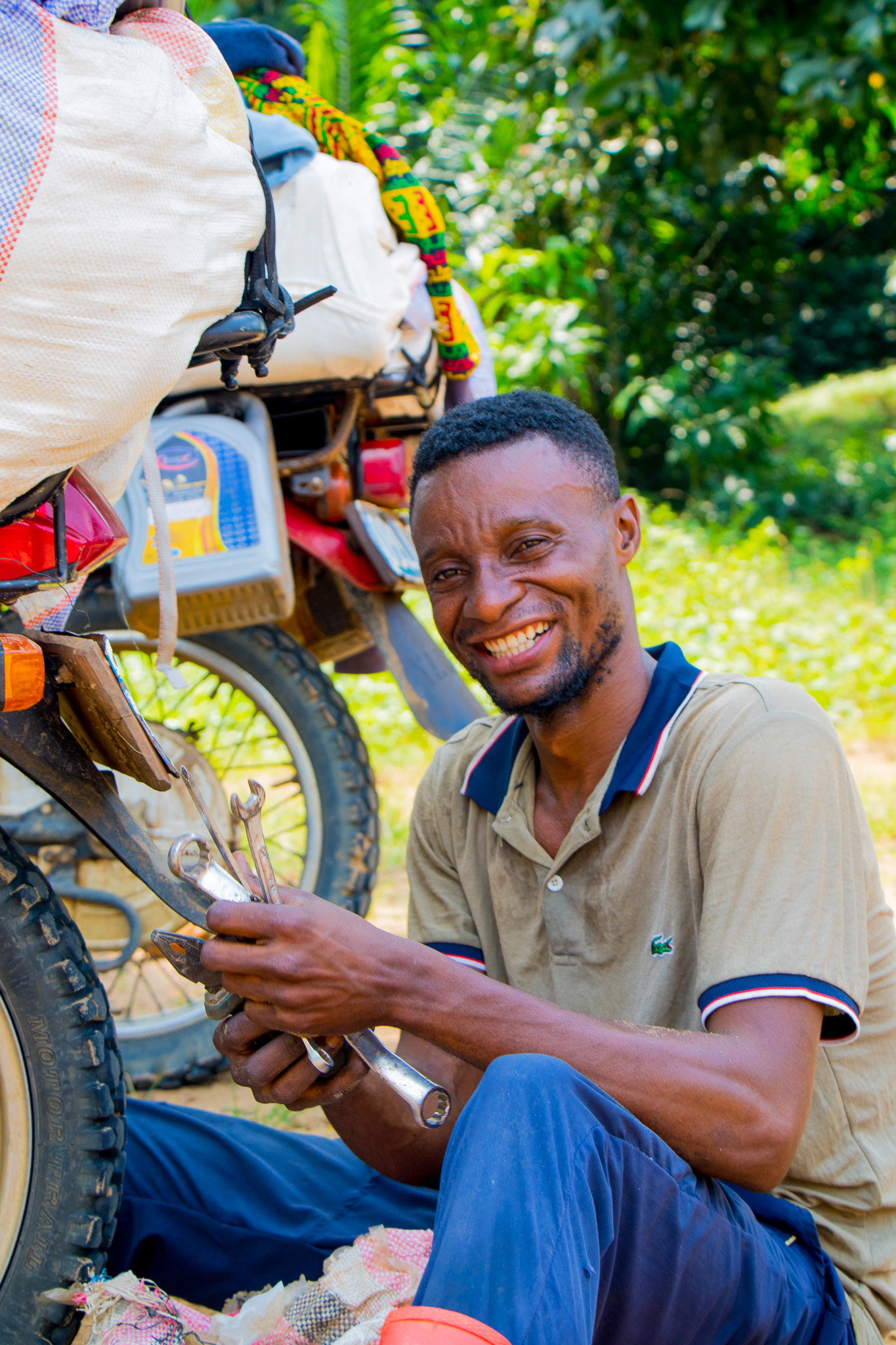Mud, Dust, and a Motorbike: Jeancy Luaka’s Road to Conservation

Motorcycle rider Jeancy Luaka navigates through the dense Lomako-Yokokala Faunal Reserve.
On the muddy and dusty roads of the Congo Basin’s Maringa Lopori Wamba landscape, a motorcycle rider named Jeancy Luaka Mabwandaka has become an unexpected champion for conservation. His daily journeys help connect remote communities with the efforts to protect bonobos, African forest elephants, and the fragile forests surrounding the Lomako-Yokokala Faunal Reserve.
A New Purpose on Congo Basin Roads

Jeancy Luaka emerges after a long and tedious journey through the forest.
When Jeancy Luaka removes his helmet after a long ride, his eyes sparkle with curiosity and pride. His motorcycle—often coated in orange mud or powdered in dry season dust—weaves through earth roads, wooden bridges, and forest edges across the Congo Basin.
“Back then, I was just transporting people,” he recalls. “Now, I carry innovative ideas for the well-being of an entire planet.”
From Moto-Taxi Driver to Conservation Partner
In 2017, Jeancy was a motorcycle taxi driver navigating the busy routes of his hometown. Four years later, he joined AWF as a mechanic and rider—an opportunity that would change the course of his life.
His first assignment took him across the vast Maringa-Lopori-Wamba (MLW) landscape—from Boende to Djolu, Bongandanga, and Basankusu—supporting a 10-day conservation awareness campaign. Only two weeks later, he set out again on a two-month mission.
“During the first trip, I was frustrated. I didn’t understand conservation and saw it as a list of restrictions,” he says.
But something shifted on his second mission. “I realized it wasn’t just about obligations. Conservation also gives us rights—like safer communities, protected forests, and a healthier environment.”
A Living Link Between Science and Community
On every journey, Jeancy stops to greet familiar faces. Today, he is more than a driver; he is a trusted messenger connecting field teams and forest communities.
On market days, he parks in village squares to answer questions about wildlife and forest rules. On school routes, he talks with parents about keeping children safe around elephants. At river crossings, he coordinates with canoeists to move health workers and gear. In farming hamlets, he relays patrol schedules to avoid misunderstandings. After long rides, he sits with elders to hear concerns about crop loss or logging pressure—carrying those messages back to AWF teams.
This human connection has become one of the most effective tools in conservation outreach.
Access: A Critical Ingredient for Wildlife Protection
“Jeancy knows every trail, every village, every muddy turn,” says Dodo Moke, AWF’s Senior Social Environmental and Safeguard Officer. “He takes us where the roads end, where the forest begins, to speak.”
MLW Landscape Manager Julien Nkono agrees. “Without Jeancy, some areas would remain inaccessible. His motorcycle reaches paths that maps don’t show, crosses rivers in all seasons, and climbs hills where vehicles fail.”
This mobility is crucial in the MLW landscape, where poaching and habitat loss threaten bonobos, African forest elephants, and other species. Jeancy’s ability to reach remote villages strengthens monitoring, community engagement, and early warning systems.
Strengthening Buffer Zones Around Lomako-Yokokala

Jeancy Luaka joyfully prepares his motorcycle for another trip through the dense forest.
With support from the Segré Foundation, AWF is implementing the project “Buffer Zone Biodiversity: Expanding Species Conservation Beyond Protected Boundaries in the Lomako Landscape.”
The initiative focuses on the Lomako-Yokokala Faunal Reserve (LYFR) and surrounding community forests—rich in biodiversity but historically under-monitored.
Over the next two years, the project will:
- Expand ecological monitoring into four peripheral forests
- Train community eco-guards
- Organize monthly patrols,
- Deploy SMART and camera traps
- Generate stronger scientific data on wildlife and habitats
The goal is to reduce illegal activity, build local ownership, and ensure that communities benefit from conservation—core to AWF’s approach.
Learning the Language of the Forest
Working alongside AWF's scientists and community teams has transformed Jeancy’s understanding of the natural world.
“Before, I just saw trees. Now, I see a home—for animals and for all of us,” says Jeancy, who is also a husband and father of two daughters.
He may not consider himself a hero, but his work tells another story. Every mile he rides and every conversation he holds strengthens the relationship between people and nature.